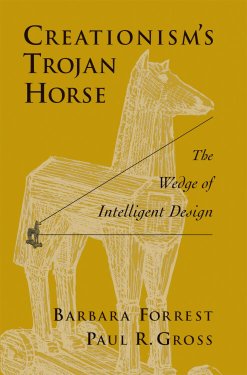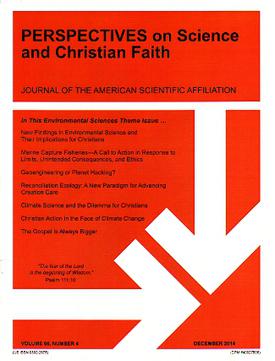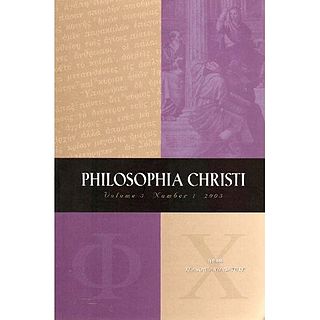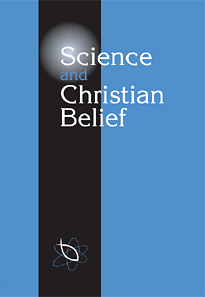
The relationship between religion and science involves discussions that interconnect the study of the natural world, history, philosophy, and theology. Even though the ancient and medieval worlds did not have conceptions resembling the modern understandings of "science" or of "religion", certain elements of modern ideas on the subject recur throughout history. The pair-structured phrases "religion and science" and "science and religion" first emerged in the literature during the 19th century. This coincided with the refining of "science" and of "religion" as distinct concepts in the preceding few centuries—partly due to professionalization of the sciences, the Protestant Reformation, colonization, and globalization. Since then the relationship between science and religion has been characterized in terms of "conflict", "harmony", "complexity", and "mutual independence", among others.

The Institute for Christian Studies is a private, graduate-level Reformed philosophical and theological school in Toronto, Ontario. At ICS, students and faculty take part in shared learning through participatory seminars, mentoring, and an interdisciplinary approach to study. There are several unrelated institutions bearing similar names.

Biola University is a private, nondenominational, evangelical Christian university in La Mirada, California. It was founded in 1908 as the Bible Institute of Los Angeles. It has over 150 programs of study in nine schools offering bachelor's, master's, and doctoral degrees. The university hosts the annual Missions Conference, the largest annual missions conference and the second-largest missions conference in the world. It has also played a significant role in the development of intelligent design.

Alister Edgar McGrath is a Northern Irish theologian, Anglican priest, intellectual historian, scientist, Christian apologist, and public intellectual. He currently holds the Andreas Idreos Professorship in Science and Religion in the Faculty of Theology and Religion, and is a fellow of Harris Manchester College at the University of Oxford, and is Professor of Divinity at Gresham College. He was previously Professor of Theology, Ministry, and Education at King's College London and Head of the Centre for Theology, Religion and Culture, Professor of Historical Theology at the University of Oxford, and was principal of Wycliffe Hall, Oxford, until 2005.
Bernard L. Ramm was a Baptist theologian and apologist within the broad evangelical tradition. He wrote prolifically on topics concerned with biblical hermeneutics, religion and science, Christology, and apologetics. The hermeneutical principles presented in his 1956 book Protestant Biblical Interpretation influenced a wide spectrum of Baptist theologians. During the 1970s he was widely regarded as a leading evangelical theologian as well known as Carl F.H. Henry. His equally celebrated and criticized 1954 book The Christian View of Science and Scripture was the theme of a 1979 issue of the Journal of the American Scientific Affiliation, while a 1990 issue of Baylor University's Perspectives in Religious Studies was devoted to Ramm's views on theology.
Christians in Science (CiS) is a British organisation of scientists, philosophers, theologians, ministers, teachers, and science students, predominantly evangelical Christians, concerned with the dialogue between Christianity and science. The organisation was started in the 1940s as one of the professional groups of IVF, and was known as the Research Scientists' Christian Fellowship from 1950 until it adopted the current name in 1988.

Spiritus: A Journal of Christian Spirituality is a biannual peer-reviewed academic journal published by Johns Hopkins University Press. It was established in 1993 as the Christian Spirituality Bulletin: Journal of the Society for the Study of Christian Spirituality and obtained its current title in 2001. It is the official publication of the Society for the Study of Christian Spirituality and covers research on Christian spirituality while fostering creative dialogue with non-Christian traditions. As such, it explores the relationship between spirituality and cultural analysis using the disciplines of history, philosophy, theology, and psychology, among others. The journal includes original articles, reviews, and translations. Readership includes academics as well as a general audience. The editor-in-chief is Steven Chase.

Creationism's Trojan Horse: The Wedge of Intelligent Design is a 2004 book by Barbara Forrest and Paul R. Gross on the origins of intelligent design, specifically the Discovery Institute's Center for the Renewal of Science and Culture and its wedge strategy. The authors are highly critical of what they refer to as intelligent design creationism, and document the intelligent design movement's fundamentalist Christian origins and funding.
Christian views on environmentalism vary among different Christians and Christian denominations.
Vern Sheridan Poythress is an American philosopher, theologian, New Testament scholar and mathematician, who is currently the New Testament chair of the ESV Oversight Committee. He is also the Professor of New Testament Interpretation at Westminster Theological Seminary and editor of Westminster Theological Journal.

The American Scientific Affiliation (ASA) is a Christian religious organization of scientists and people in science-related disciplines. The stated purpose is "to investigate any area relating Christian faith and science." The organization publishes a journal, Perspectives on Science and Christian Faith which covers topics related to Christian faith and science from a Christian viewpoint.
The Victoria Institute, or Philosophical Society of Great Britain, was founded in 1865, as a response to the publication of On the Origin of Species and Essays and Reviews. Its stated objective was to defend "the great truths revealed in Holy Scripture ... against the opposition of Science falsely so called." Although it was not officially opposed to evolution, it attracted a number of scientists sceptical of Darwinism, including John William Dawson and Arnold Guyot.

Religion is a peer-reviewed academic journal in the field of Religious studies, edited by the religion academic scholars Michael Stausberg and Steven Engler. It was founded in 1971, with close ties to the Religious Studies program at the University of Lancaster. That program was founded and chaired by Ninian Smart, and he served as the chairman of the first editorial board. Four companies have published the journal over the years: Oriel Press (1971–72), Routledge & Kegan Paul (1973–80), Academic Press (1981–2000), Elsevier (2001–2010), and currently Routledge.

Perspectives on Science and Christian Faith, subtitled Journal of the American Scientific Affiliation, is the academic publication of the American Scientific Affiliation.
F. Alton Everest (1909–2005) was an American acoustical engineer, a cofounder of the American Scientific Affiliation, and its first president.
Roger D. Duke is an author, theologian, educator, itinerant preacher, and was a professor at several institutions of higher learning including Union University, Baptist College of Health Sciences, Liberty University, Memphis Theological Seminary, and Columbia Evangelical Seminary. Professor Duke also serves as a Consulting Editor for B & H Academic's Studies in Baptist Life and Thought series. He retired in 2016 to focus on a speaking and writing career by forming the Duke Consulting Group.
David Oscar Moberg is an American Christian scholar, who is Emeritus Professor of Sociology at Marquette University. His areas of specialization included methodology in qualitative research, sociology of religion, sociology of American evangelicals, ageing and religion (gerontology).
Wesley J. Wildman is a contemporary Australian-American philosopher, theologian, and ethicist. Currently, he is a full professor at the Boston University School of Theology, founding member of the faculty of Computing and Data Sciences, and convener of the Religion and Science doctoral program in Boston University's Graduate School. He is executive director of The Center for Mind and Culture, founding co-director of the Institute for the Biocultural Study of Religion, and founding co-editor of the journal Religion, Brain & Behavior. Wildman's academic work has focused on interpreting religion and building theories of religious beliefs, behaviours, and experiences that acknowledge value in longstanding traditions while attempting to remain intellectually viable in light of the biological, cognitive, evolutionary, physical, and social sciences. He is an important figure in the religion and science field, along with scholars such as Robert John Russell, Nancey Murphy, and John Polkinghorne.

Philosophia Christi is a biannual peer-reviewed academic journal published by the Evangelical Philosophical Society with the support of Biola University. It covers philosophical issues in the fields of apologetics, ethics, theology, and religion from an evangelical perspective and publishes articles, philosophical notes, and book reviews. The editor-in-chief is Craig Hazen.
Marion David Barnes (1913–2004) was President of Covenant College from 1965 to 1978. According to Rudy Schmidt, Barnes "paved the way for the college to move from its Midwestern roots to be a welcomed institution in the Southeast."









